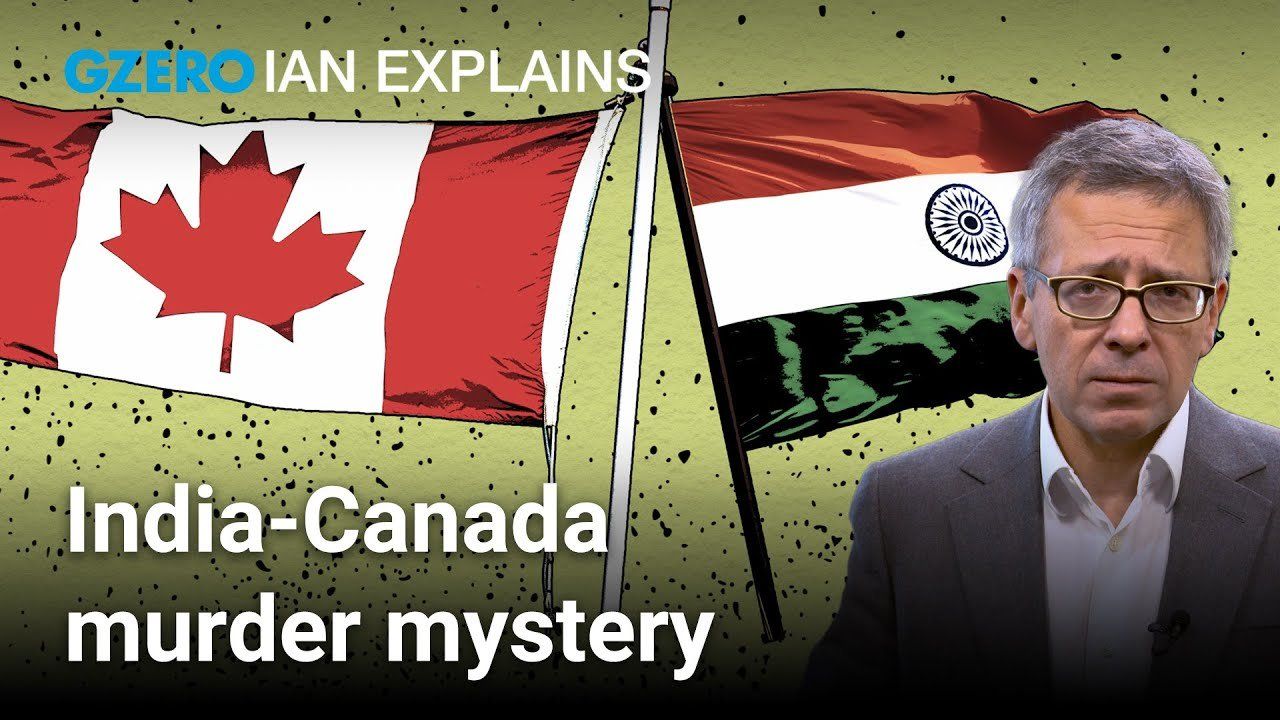Ian Explains
Ian Explains: Why India-Canada relations are tense over a mysterious murder

Ian Explains: Why India-Canada relations are tense over a mysterious murder | GZERO World

On June 18th in a Vancouver suburb, Hardeep Singh Nijjar, a Sikh leader and Canadian citizen, pulled his grey pickup truck out of a parking space at his local temple. In security video viewed by The New York Times and The Washington Post—but not yet released to the public—a white sedan can be seen cutting off Nijjar’s truck as two men in hooded sweatshirts emerge from a covered area and fire a reported 50 bullets into the pickup truck’s driver’s seat, killing Nijjar instantly.
And then, weeks later, Canadian Prime Minister Justin Trudeau made a bombshell accusation on the floor of Canada’s parliament. “Over the past number of weeks," Trudeau announced, "Canadian security agencies have been actively pursuing credible accusations of a potential leak between agencies of the government of India and the killing of a Canadian citizen, Hardeep Singh Nijjar. Any involvement of a foreign government in the killing of a Canadian citizen on Canadian soil is an unacceptable violation of our sovereignty.”
Just to give you a sense of how serious this announcement was, imagine if the journalist Jamal Khashoggi had been an American citizen, and the Saudis had killed him in New York, Ian Bremmer explains on GZERO World.
Canada is home to the largest Sikh community outside of India. Sikhs are a religious minority that makes up less than 2% of the Indian population. A militant wing of the community has long called for the creation of a Sikh state called Khalistan. In 1984, Sikh bodyguards assassinated India’s Prime Minister Indira Gandhi. Nijjar, a supporter of the Khalistan movement who migrated to Canada in the 1990s, was accused by New Delhi of involvement in terrorist acts in India, an accusation he and his supporters have denied.
It’s a challenging time for Canada–India relations, to be sure. Trudeau raised Nijjar’s assassination with Modi at the G20 summit in early September. The answer he got in private was unsatisfactory, and he decided to go public. All of this puts the US in a tough spot: Washington has been cultivating India as a much-needed partner against China. But New Delhi has now allegedly ordered the murder of a Canadian citizen in Canada, one of the US’s closest allies. It’s a staggering violation of international law and norms, especially between two democracies. And it’s a position the Biden administration never expected to be in.
100 million: The number of people expected to watch the Super Bowl halftime performance with Bad Bunny, the Puerto Rican superstar and newly minted Album of the Year winner at the Grammys.
Think you know what's going on around the world? Here's your chance to prove it.
An imminent US airstrike on iran is not only possible, it's probable.
Americans are moving less — and renting more. Cooling migration and rising vacancy rates, especially across the Sunbelt, have flattened rent growth and given renters new leverage. For many lower-income households, that relief is beginning to show up in discretionary spending. Explore what's changing in US housing by subscribing to Bank of America Institute.